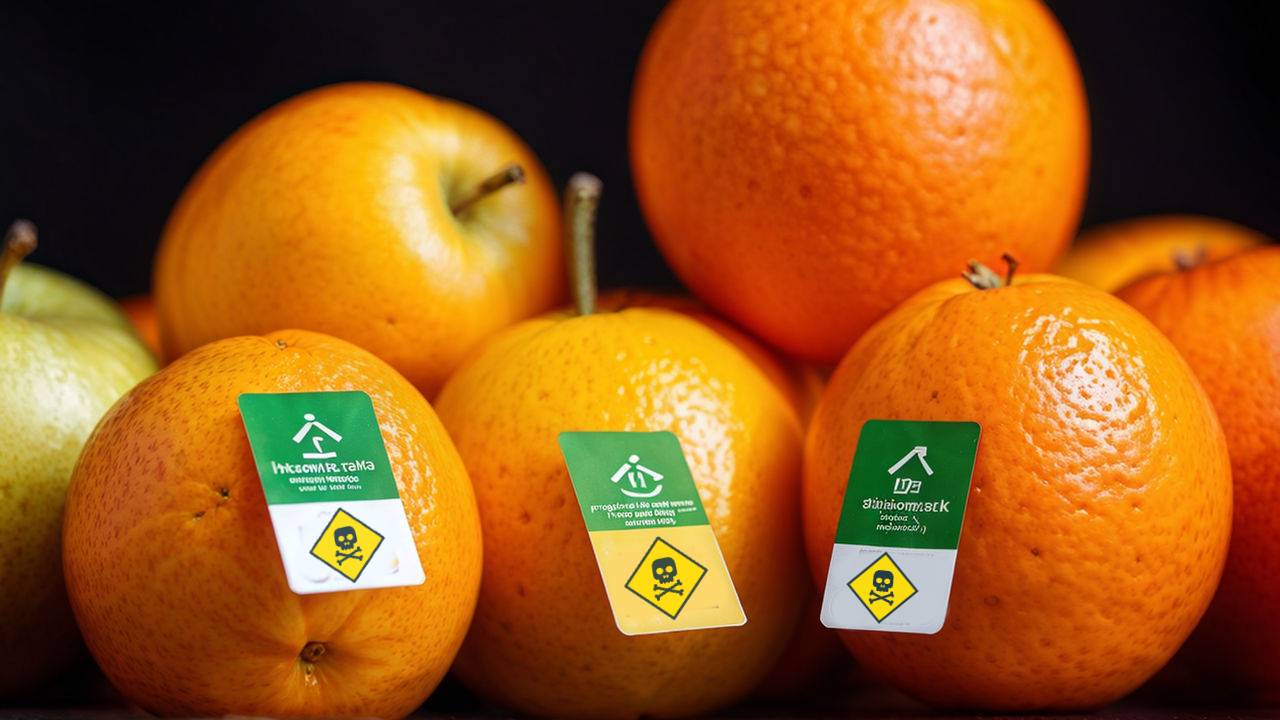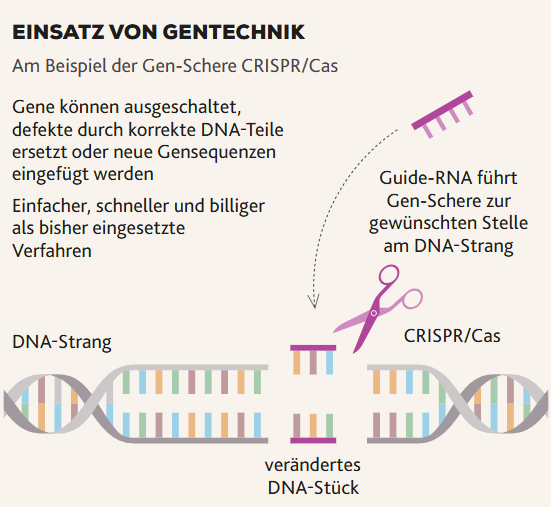
In a rapidly evolving landscape, significant developments in genetic engineering and agricultural regulations are taking place within the European Union (EU), sparking widespread concern and debate among Austrian citizens and environmental organizations. Despite the magnitude of these changes, many Austrians remain unaware of their implications.
A flood of “Frankenstein” patents is poised to inundate the food and agriculture sectors. Billion-dollar agribusinesses are aggressively pursuing patents on genetic material from vegetables, flora, and even beer. These corporations are targeting naturally occurring properties in plants, such as resistance to heat or pests, and then applying for patents on these discoveries. Consequently, thousands of such valuable properties are becoming the private property of individual companies. This new wave of patents threatens to undermine the strict protection that conventionally bred plants have enjoyed, paving the way for corporations to monopolize essential food resources.

The EU Commission has already greenlit the use of CRISPR gene-editing technology, which allows for precise modifications of plant DNA. This technique, which does not require labeling, can be used in organic foods, raising concerns about transparency and consumer choice. Despite Austria’s opposition, this regulatory shift has been approved, further complicating the landscape for farmers and consumers who wish to avoid genetically modified organisms (GMOs).
EU trying to impose new seed laws
Adding to the complexity is a new regulation on seeds. In 2014, the EU attempted to make heirloom seeds illegal, and now, a decade later, they are once again trying to restrict the free exchange of seeds between farmers and gardeners. This move runs counter to the preferences of the Austrian public, who overwhelmingly oppose GMOs and support the free exchange of heirloom seeds.
The broader implications of these developments are profound. The actions of the EU and large corporations are threatening Austria’s food sovereignty and the diversity of its food supply. Greenpeace and other environmental organizations have raised alarms about the potential consequences for domestic farmers and biodiversity. According to Greenpeace Europe Director Alexander Egit, “Farmers must retain the clear right to harvest, pass on, exchange, and ultimately sell their valuable harvest heritage.”
This sentiment is echoed by Arche Noah activist Axel Grunt, who warns that the new genetic engineering techniques are being misused to undermine the protection of conventional plants. Corporations like BASF, Bayer, and Syngenta have already secured exclusive rights to essential food crops, including tomatoes, melons, and beer. As a result, field managers and breeders may soon lose the ability to freely decide on the diversity of species and varieties.
The 2023 EU seed law, currently under consideration, could further exacerbate the situation. The proposed legislation aims to simplify the use of new genetic engineering techniques, such as CRISPR/Cas gene scissors, without requiring labeling. This move has drawn sharp criticism from Austrian officials and environmentalists. Environment Minister Leonore Gewessler expressed “really great concern” about the EU’s plans, emphasizing the importance of maintaining freedom of choice for consumers.
Critics argue that the deregulation of genetic engineering could result in significant risks, including the contamination of organic fields and the emergence of herbicide-resistant “super weeds.” Genetic engineering proponents, however, contend that these technologies are necessary to develop resistant and high-yielding plants in response to the climate crisis.
The debate over genetic engineering is far from settled. The EU’s “Food and Biodiversity Package,” which includes new genetic engineering regulations, soil health legislation, and seed law reforms, is currently under discussion. As EU states and the European Parliament work to reach a compromise, the future of genetic engineering and seed regulation remains uncertain.
Despite the urgency of these issues, public awareness in Austria is alarmingly low. It is crucial to share this information and raise awareness about the potential consequences of these developments. The actions of the EU and large corporations are reshaping the agricultural landscape, with far-reaching implications for food sovereignty, biodiversity, and consumer rights.
As the EU moves forward with its proposals, Austrian citizens must stay informed and engaged in the debate. The stakes are high, and the decisions made today will shape the future of agriculture and food production for generations to come.
Proposed new law restricts the free exchange of seeds
Traditionally, farmers and home gardeners have exchanged heirloom and locally adapted seeds freely, fostering biodiversity and preserving unique plant varieties that are well-suited to local conditions. This practice not only supports ecological sustainability but also empowers individuals to maintain a degree of independence from large agribusinesses.
However, the new regulation aims to impose stricter controls on the exchange of seeds. By requiring that all seeds, including those exchanged informally between individuals, meet certain standards and possibly be registered, the regulation could make it more difficult and costly for farmers and gardeners to trade seeds freely. This bureaucratic hurdle could deter the casual exchange of seeds, thus stifling the diversity that comes from grassroots seed swapping.
Critics argue that these regulations are designed to benefit large seed companies that hold patents on specific genetic traits, effectively pushing small-scale farmers and gardeners into buying commercial seeds. This could lead to an increase in seed prices and reduce the availability of non-commercial, heirloom varieties.
Moreover, the need for compliance with complex regulations could overwhelm small farmers and hobbyist gardeners, who may lack the resources to navigate the new legal landscape. This potential barrier could lead to a decline in the variety of crops grown and shared, undermining efforts to preserve agricultural biodiversity.
Environmental organizations and advocates for agricultural sovereignty are deeply concerned about these changes. They stress that the free exchange of seeds is vital for maintaining genetic diversity, which is crucial for resilience against pests, diseases, and climate change. Without the ability to freely exchange seeds, the rich tapestry of Austria’s agricultural heritage could be at risk.
As the EU moves forward with these proposals, it is essential for Austrian stakeholders to voice their concerns and engage in the regulatory process. Ensuring that the tradition of seed exchange remains protected is not just about preserving the past; it’s about securing the future of sustainable and diverse agriculture.
Impacts on farmers and gardeners
The impending changes in genetic engineering and seed regulation within the European Union are likely to have profound effects on farmers and home gardeners in Austria, potentially altering the way they operate and interact with their crops and seeds. Here’s an in-depth look at how these developments could impact them:
For Farmers:
- Loss of Seed Sovereignty: One of the most significant concerns is the potential loss of seed sovereignty. Farmers may find themselves increasingly dependent on patented seeds from large agribusinesses like BASF, Bayer, and Syngenta. These companies could monopolize seeds with desirable traits, forcing farmers to purchase seeds annually rather than saving and replanting their own. This dependency can escalate costs and reduce farmers’ control over their crop choices.
- Increased Costs: With patents on genetic properties, farmers might face higher costs for seeds that possess desirable traits, such as pest resistance or drought tolerance. The financial burden could be especially challenging for smaller farms that operate on tighter margins.
- Risk of Contamination: The approval of CRISPR gene-editing technology without mandatory labeling raises the risk of cross-contamination between genetically modified crops and conventional or organic fields. This can lead to unintended economic consequences, such as loss of organic certification, which could be devastating for farmers relying on premium prices for organic produce.
- Reduced Biodiversity: The focus on patented, high-yield crops could lead to a decrease in agricultural biodiversity. Farmers might opt for a narrower range of crops that promise higher profitability, but this could make the agricultural system more vulnerable to pests, diseases, and climate change. A diverse crop portfolio is critical for resilience and sustainability.
- Legal and Regulatory Challenges: Navigating the new regulatory landscape could become more complex and costly. Farmers may need to invest in legal advice to ensure compliance with the new rules, particularly concerning the use of patented seeds and genetic technologies.
For Home Gardeners:
- Restricted Seed Exchange: The new seed regulation could significantly hamper the free exchange of heirloom seeds among gardeners. This tradition of swapping seeds ensures genetic diversity and the preservation of rare and locally adapted plant varieties. Restrictions could lead to a homogenization of garden plants and a loss of unique, heritage varieties.
- Access to Seeds: Home gardeners might find it more difficult and expensive to obtain seeds for their gardens. If large corporations control a significant portion of the seed market, gardeners may have fewer choices and face higher prices for seeds that were previously accessible through swaps or small, independent seed companies.
- Transparency and Choice: Without mandatory labeling for genetically edited plants, gardeners might unknowingly plant genetically modified varieties. This lack of transparency can be troubling for those who prefer to avoid GMOs in their gardens for personal or environmental reasons.
- Environmental Impact: Home gardens play a role in local ecosystems, offering habitats for pollinators and other wildlife. The introduction of genetically edited plants could have unforeseen ecological consequences, potentially disrupting these small but vital ecosystems.
While proponents of genetic engineering argue that these technologies are essential for developing crops resilient to climate change and capable of higher yields, the potential downsides for farmers and home gardeners cannot be overlooked. The erosion of seed sovereignty, increased costs, and risks to biodiversity and transparency are significant concerns that need addressing.
As the EU continues to negotiate and finalize its regulatory framework, it is imperative for Austrian farmers, gardeners, and the broader public to stay informed and engaged. The decisions made in the coming months will have lasting repercussions on Austria’s agricultural practices, food sovereignty, and environmental health.
Citations:
EU will Gentechnik leichter ermöglichen, 05.07.2023
Auf uns rollt Flut an Frankenstein-Patenten zu, 09.07.2024
Wie EU-Saatgutreform die Sortenvielfalt gefährdet, 18.03.2024
Lockere Gentechnik-Regeln: „Sorge“ in Österreich, 05.07.2023
BANNED: European Union To Outlaw Heirloom Seeds? 6 May 2013
Why Does Europe Struggle to Get a New Seed Law That Still Works for Breeders and Farmers? 24 April 2024
Legislation on seeds in the European Union, 25.11.2020







